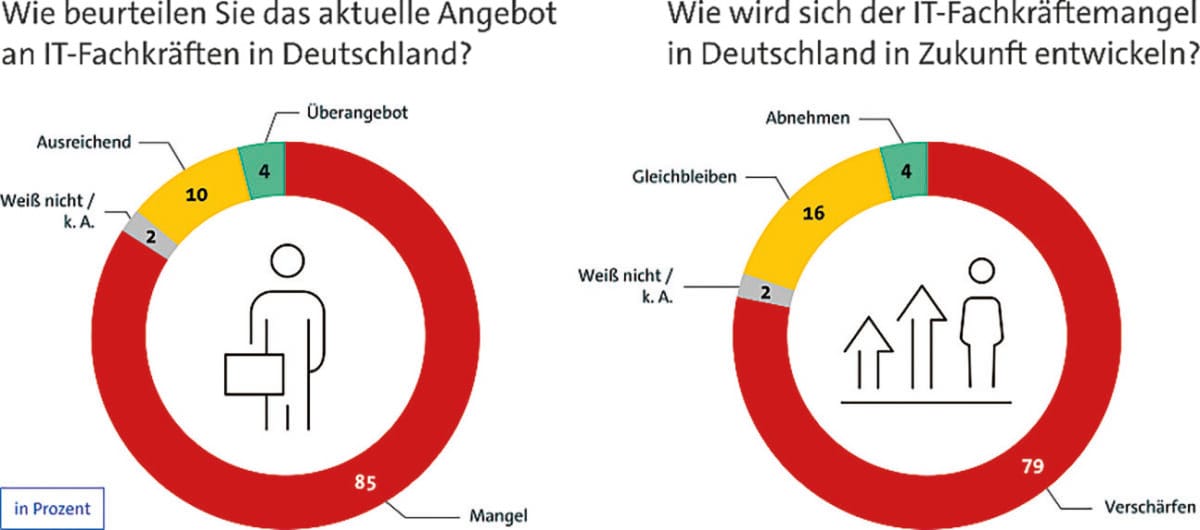100,000 IT specialists missing


79% of companies expect the shortage to worsen in the future. This is the result of the new Bitkom study, for which 855 companies from all sectors were surveyed. AI is gaining in importance: 8% of companies are using it specifically to replace missing IT experts. 42% expect AI to create additional demand, while 27% anticipate job cuts. AI can already process support requests or generate code, but it also creates new requirements for specialized professionals. In addition to AI, companies are focusing on further training (31%), lateral entry programs (22%) and measures to retain older employees for longer (19%). 14% are specifically promoting women in IT professions, while 12% are increasingly relying on external staff. Nevertheless, 29% are currently doing nothing to combat the shortage.
AI and career changers
One in four IT jobs now goes to lateral entrants, often with non-specialist training but practical IT experience or self-taught know-how. It takes an average of 7.7 months to fill an open IT position. The main obstacles are excessive salary demands (63%), unwillingness to relocate (44%) and a lack of flexibility on the part of employers when it comes to mobile working (43%).

Basis: All companies (n=855) | Deviations from 100 percent are due to rounding.
Source: Bitkom







1 comment
Robert Einsle
109.000 offene IT-Stellen – das ist ein Weckruf für alle Unternehmen, die auf Digitalisierung setzen! 🚨
Was mir besonders auffällt:
KI als Lösung UND Herausforderung – sie ersetzt zwar Aufgaben, schafft aber gleichzeitig neue Anforderungen.
Quereinsteiger als Chance – 25 % der IT-Jobs gehen bereits an Menschen mit fachfremdem Hintergrund. Das zeigt: Praxis schlägt Theorie.
Weiterbildung & Flexibilität sind entscheidend – wer remote und agil arbeitet, gewinnt Talente.
💡 Mein Impuls aus der Praxis: Unternehmen, die mit Tools wie GoHighLevel arbeiten, können nicht nur Prozesse automatisieren, sondern auch digitale Lernpfade für Quereinsteiger schaffen – z. B. durch Onboarding-Funnels, interaktive Trainings und KI-gestützte Supportsysteme.
Statt auf den Fachkräftemangel zu starren, sollten wir ihn als Innovationsmotor nutzen. Wer heute in Weiterbildung, Automatisierung und digitale Infrastruktur investiert, sichert sich morgen die besten Talente.